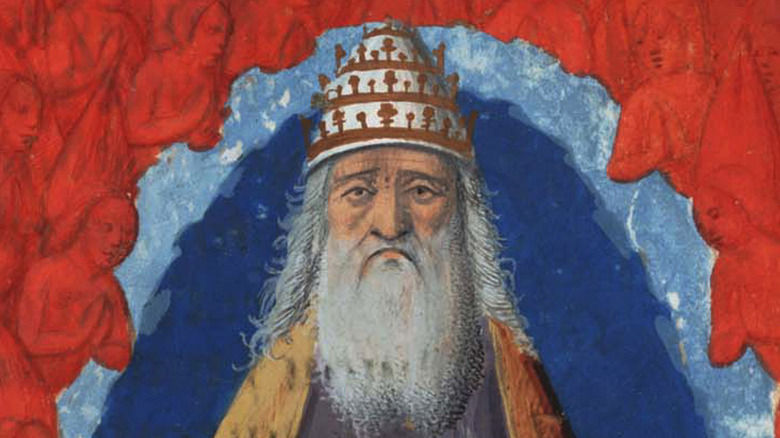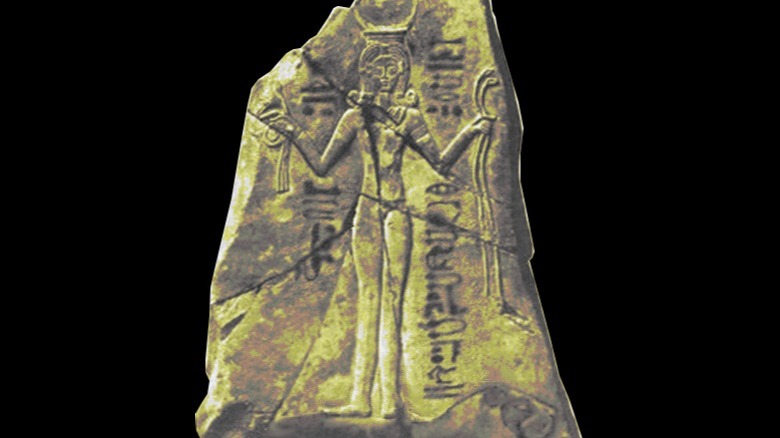Here Is Why Some Scholars Think God Had A Wife
As a 2012 article in The Atlantic points out, the question of whether Jesus Christ had a wife has long been a bone of contention. Critics would argue that questionable historical evidence (based upon ancient scroll fragments) being jumped upon by both religious researchers and popular writers served as the basis for creating a whole — rather incredible — mythos. But whether such speculation is credible, the success of works such as Dan Brown's "The Da Vinci Code," which teases the possibility of a malign cover-up by the religious establishment of the historical truth of our major world religions, shows our appetite for such revelations that go against received dogma.
But while we still don't have a reputable account of the love life of Jesus Christ, researchers are increasingly confident that they may have uncovered details about that of another, unexpected entity: God himself.
Francesca Stavrakopoulou, a researcher in Theology and Religion at the University of Exeter, has claimed: "After years of research specializing in the history and religion of Israel, however, I have come to a colorful and what could seem, to some, uncomfortable conclusion that God had a wife." (per NBC News) By God, Stavrakopoulou means specifically Yahweh, the God of Ancient Israel from whom many modern formulations of the Almighty are derived.
Yahweh's consort, Asherah
Though the Bible is typically considered a monotheistic text, the writing itself does occasionally concede that in the period it covers worshippers of Yahweh did indeed pay tribute to multiple deities. Stavrakopoulou argues that it "is the Bible's admission that the goddess Asherah was worshiped in Yahweh's Temple in Jerusalem. In the Book of Kings, we're told that a statue of Asherah was housed in the temple and that female temple personnel wove ritual textiles for her." (via NBC News).
Writing in the Atlantic, historian Richard Wright posits that Asherah might, in fact, be the "Hebrew version of Athirat," the consort of a Canaanite god known as El, who through a "merger" with other pantheistic gods is likely to have formed the basis of Yahweh, and therefore of God today.
Stavrakopoulou has found evidence of a co-existing belief in both Asherah and Yahweh, as depicted on a range of ancient materials including pots, jewelry, and statuettes. And while her name does appear in the Bible, it has often been translated differently: she is often replaced with a "sacred tree," according to J. Edward Wright, president of the Arizona Center for Judaic Studies and the Albright Institute for Archaeological Research, the result of a turn to monotheism that began in the sixth century B.C., per NBC News.

